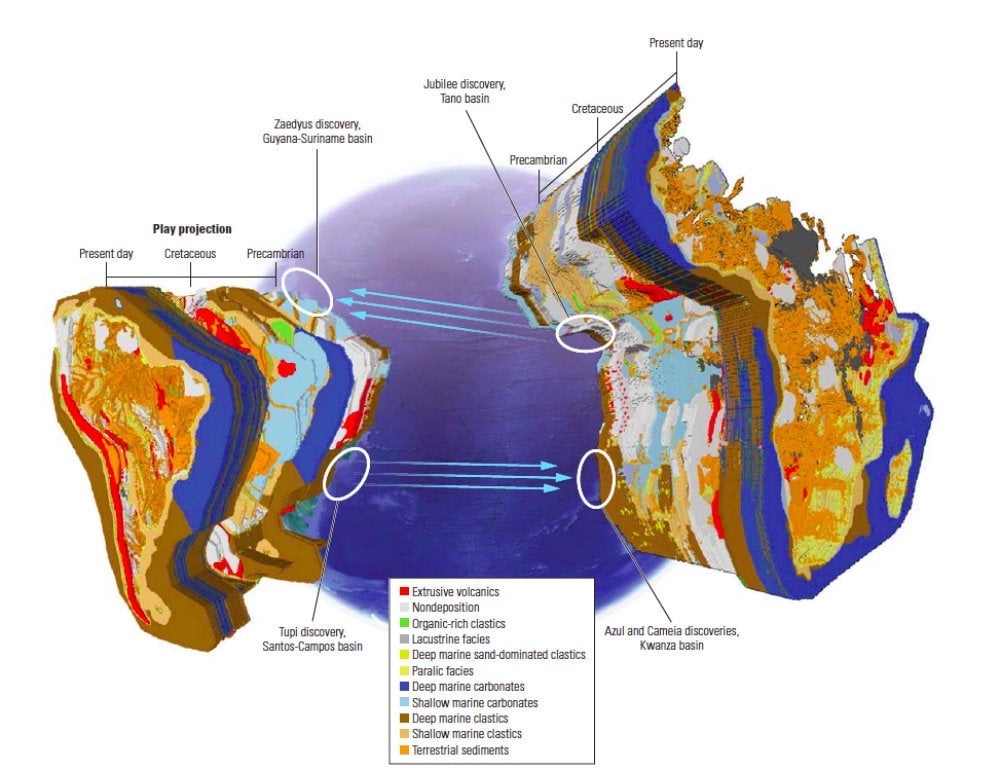Solving a geological jigsaw puzzle could make oil companies billions
When you are standing in Brazil, you might as well be in Angola. The same goes with Ghana and French Guiana. At least, that’s the way that the most geologically savvy oil explorers look at the world: Because of how the continents have shifted over geological time, when you find oil in one place, you can often know with some certainty that you will also find it thousands of miles away in another spot.

When you are standing in Brazil, you might as well be in Angola. The same goes with Ghana and French Guiana. At least, that’s the way that the most geologically savvy oil explorers look at the world: Because of how the continents have shifted over geological time, when you find oil in one place, you can often know with some certainty that you will also find it thousands of miles away in another spot.

A couple of companies have based their business model on this phenomenon, which is known as an “analog” (here is an academic treatment of the subject with very good maps). And the result is many of the major discoveries that are changing geopolitics. They include Tullow Oil, which pioneered Ghana, in west Africa, then found its analog in French Guiana, across the Atlantic in South America. Both continents look likely to be new centers of energy gravity in the coming decade, challenging the Middle East.
Another is Repsol, the Spanish oil company that has used a supercomputer-driven system called Kaleidoscope to create big finds in the Gulf of Mexico and deep offshore Brazil. Kaleidoscope is especially powerful because, according to its developer, a Stanford University professor named Biondo Biondi, the technology can peer through two kilometers of water and then another 15 kilometers of rock. This solves a big problem of prospecting, which is that three-dimensional seismic images becomes fuzzy when you are looking beneath the salt domes that tend to hold the largest oil reservoirs (in industry argot, “pre-salt.”) One Repsol executive likened Kaleidoscope (paywall) to the Hubble Space Telescope in that it sharpens far-away images. Biondi markets his work through a Houston company he founded called 3DGeo Development.
Now, Repsol is allowing Sonangol (paywall), Angola’s state-owned company, to use Kaleidoscope to map a basin called Kwanza, which is an analog to Brazil’s oil-rich Santos and Campos basins. Estimates are that Santos and Campos hold 35 billion barrels of oil, and analog-focused explorers wonder if similar volumes will be found in Kwanza.
Kwanza straddles the deep-water and the Angolan onshore. It is one of the hottest plays on the planet, a target not only of Repsol, but of BP, France’s Total, Italy’s Eni and Norway’s Statoil. Last year, Cobalt International Energy proved the basin with a potential 4-billion-barrel discovery.